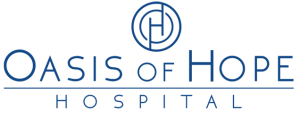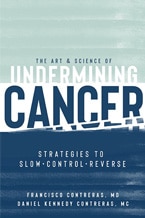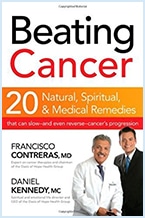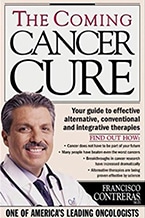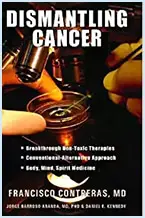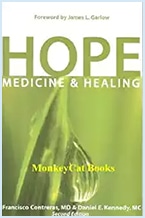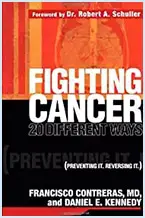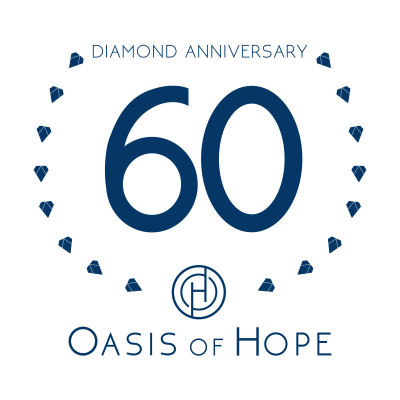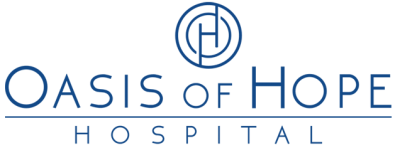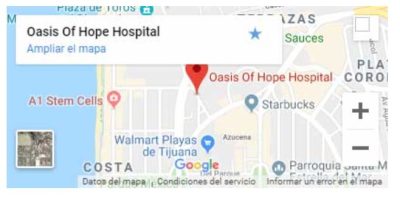Nutrition Cancer Therapy at
Oasis of Hope
The Place for Alternative Cancer
Insulin
We tend to consume diets high in saturated fats; we tend to carry extra weight around the abdominal area because we eat larger meals than those in more deprived countries; and we engage in a more sedentary lifestyle. All these factors increase insulin production, which stimulates the production of free IGF-1.
Foods that increase insulin and free IGF-1 levels in the bloodstream will ultimately stimulate cancer’s progress. These two hormones are even involved in the defense mechanism cancer uses to protect itself against chemotherapy, a diet that keeps levels of these hormones low will ultimately inhibit cancer’s progression. It really is that simple.
What to Eat
Ideally, it’s desirable for patients to adopt a vegan or wholly plant based diet, with one exception: The omega-3 fatty acids in fish oil present numerous benefits, and fish oil capsules do not increase insulin levels. A vegan diet is low-fat (only 15% of dietary calories should come from fats), is moderate in protein, and incorporates whole-food carbohydrate sources that are low on the glycemic index: semolina or wholegrain pastas, whole fruits, and whole-grain products like sprouted wheat breads (instead of wheat-flour breads). Further, because high-glycemic-index carbs can boost insulin levels, the diet should provide carbohydrates from sources that are low in glycemic index. For instance, as even carrot juice has quite a bit of natural sugar, we recommend green vegetable juices.
For instance, cruciferous vegetables like cabbage, broccoli, cauliflower, and kale are rich in sulforaphane, while onions and garlic contain allicin. Both compounds are proven to inhibit or slow the growth of cancer cells and cause the cells to produce higher levels of antioxidants as well as enzymes that detoxify the body. These foods also can increase the ability of healthy tissues to cope with chemotherapeutic drugs and radiotherapy. In addition, they may present post-treatment benefits by helping to block the development of additional cancers.
Another food with powerful anti-cancer properties, a must for any anticancer diet, is spirulina, a supplement produced primarily from two species of blue-green algae. Spirulina contains a phytonutrient that blocks a signal pathway that makes cancer cells more aggressive and that protects them from programmed cell death. In addition, spirulina contains polysaccharides that boost the ability of the immune system’s natural killer (NK) cells to block metastasis.
Eliminating Toxins
Many people believe it’s normal to move their bowels every two to three days; actually, people need to move their bowels two to three times each day. This is especially important for cancer patients, and, unfortunately, many cancer therapies are constipating. A constipated person is not eliminating toxins. In fact, toxins, including chemotherapy, are recycled, thus exposing patients to devastating side effects again and again.
A high-fiber diet is critical to detoxing the body. Many phytonutrients found in vegetables, herbs, and fruits influence detoxification pathways, improve the liver’s function, and help the bowels move. Sulforaphane, present in broccoli sprouts, specifically stimulates liver detoxification.
At Oasis of Hope, we intervene simultaneously in as many ways as feasible to promote cancer cells’ death and block their spread. This is the most effective way to control cancers and keep them from becoming aggressive. Using food as a cancer treatment is one such intervention.
How foolish would we be not to acknowledge the impact of nutrition in that effort? So much evidence clearly shows a range of cancer-specific benefits that can derive from a healthy diet. We are so adamant about this that we consider the cooks at our hospital a part of the patient’s healing team. That’s why we provide cooking classes during treatment and send people home with recipes and recorded cooking classes on their tablets.
